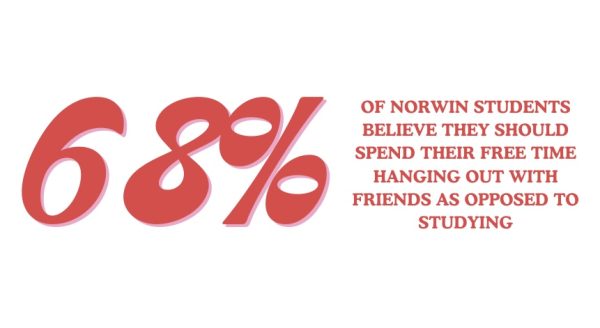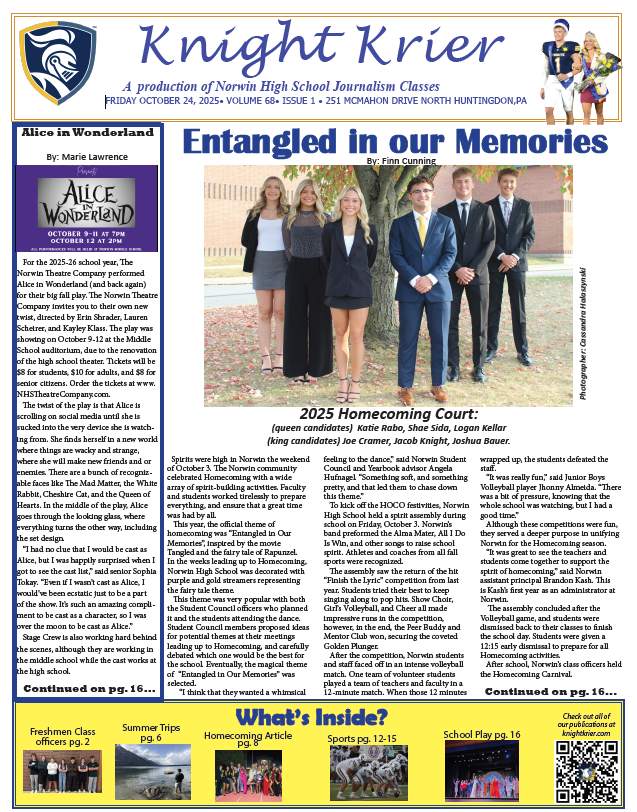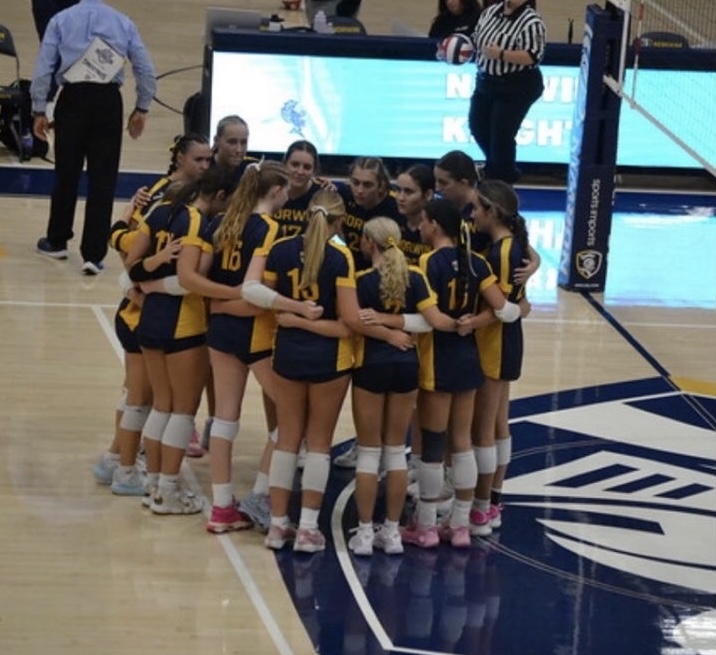A friend texts asking to hang out. You have a lot of homework, so you tell him you can’t. Later, you realize you haven’t had anything to eat all day. However, you have an assignment due tomorrow that has yet to be started, so you tell yourself the food can wait. Suddenly, it’s 1:00 am, and you are in desperate need of sleep. Your work still isn’t finished, so you tell yourself you can’t fall asleep until everything is finished.
School work often takes precedence over many aspects of some students’ lives. In today’s world, with colleges becoming more and more strict in admissions, it’s not uncommon to see students stressing over their performance in the classroom. The idea of a healthy school to life balance is rarely seen as many students even sacrifice basic human necessities such as eating and sleeping in exchange for more time to study.
While it is important for teenagers to work hard in school so that they can achieve their goals, it is just as important for them to take care of themselves. Finding a balance between academics, personal life, and self care is crucial in the lives of all students.
A recent journalism poll, conducted with 50 Norwin High School students, showed that 66 percent of students have skipped activities such as exercising, eating, and sleeping for the purpose of studying or doing homework.
These are three incredibly important aspects in a person’s everyday life. Without them, we risk our health and put our lives in harm’s way, so observing this life-endangering sacrifice in this quantity in exchange for more time to do homework is way too commonplace among students.
“It’s not uncommon to sacrifice some parts of your life to accomplish other important parts of your life,” said Norwin High School guidance counselor, Mr. Douglas Colcombe. “But it still has to come with a balance.”
Unfortunately, this balance is not seen enough. Many students tend to overwork themselves in an attempt to reach their academic goals. While these goals are hopefully beneficial in the long-run, it is important to focus on basic survival. According to the National Library of Medicine, Burnout is also extremely damaging to a person’s performance in their everyday life. Without proper rest and relaxation, the human mind and body cannot function. To prevent burnout, one must take advantage of their free time to do things that relax their mind and/or bring them joy. When Norwin students were asked what they like to do in their free time, many responses correlated to sleep.

“I mostly sleep to catch up on what I’m not getting most days,” said Norwin junior Niko Kelly. “Otherwise I play video games or hang out with my friends.”
Leisurely activities such as playing video games, watching television, or even just taking a walk are also great ways to balance life and school work. Taking a moment out of study time to do something you enjoy will make the work seem worth it. When a student overworks themself, their happiness will eventually be diminished. That is why finding a healthy balance is so important. Mental health issues in students are becoming more and more present.
A recent study by Elite Educational Institute identified a possible cause for this phenomenon: “As a student today, one might even argue that a school-life balance is often more difficult to attain due to increasing demands placed on young people to achieve.”
Each year, college acceptance rates have seen a noticeable decline. A student’s performance in high school is becoming more and more important if they wish to pursue secondary education at a university. It is understandable that many of these students are prioritizing their grades over everything else because their grades will set the stage for their futures. However, the question arises: Why does an arbitrary number have such a strong impact on whether a student gets into college?
“That [grades] is kind of like their payment,” said Colcombe. “That’s how they’re justified as a student is their grade in the gradebook, so there’s a really strong focus on getting that number as high as they can.”
Considering education as if it were a career, if a worker does well, they receive more money, and if they do poorly, they receive less. Their payment is determined by their value as a worker. A student with poor grades sees themself as a poor student. This is why such a high value is placed on grades.
When asked to rate how much they value their grades on a scale of 1 to 10, 88 percent of students rated their grades at a score of 7 or higher. Most students want to receive good grades. The idea of a grade’s evaluation of a student imbeds high standards in the minds of children. Many feel as though if they don’t receive a good enough grade, they are not good enough.
“It’s really unfortunate because the grade is not a true reflection of the student,” said Colcombe. “I have some really strong students that are excelling in terms of that number, but they don’t have a good grasp on life.”
The things students are graded on usually have no coorelation to their value as a person. If someone is really good at solving elaborate equations or at writing intricate essays, that’s great. However, when it comes time to interview for their dream job, if they are not well rounded and sociable, chances are, they will not get hired.
“It is okay to let school be your priority and to continue to do your best,” said Colcombe, “but you also have to focus on developing yourself wholly which I think is very important.”
By finding a balance between personal life and school, it becomes easier and easier to find success. You will still have to work hard for everything you do, but as long as there is as much as a focus on personal growth as there is on that of academics, the hard work will result in higher success.
“I believe that hanging out with friends, family, going out and participating in school activities are just as important to success as grades themselves,” said Norwin junior Molly Geissler. “Not only are they good relaxing activities, they help to build valuable social skills.”
Spending time with others, doing something you enjoy will not only provide a well needed break in a study session. It will also allow for personal growth and experience. One of the most highly valued aspects of a resume is extracurriculars. Being involved in things you’re passionate about has significant benefits.
“Being involved and doing those things is important because then you’re developing yourself completely and not just in one area of your life,” said Colcombe. “If you worked out just your left side for years, you’re not going to look right. Something’s going to be off.”
Those who haven’t found a healthy balance yet are most likely aware that they should. A study by the National Library of Medicine showed that it is often the brightest students that lack common sense. Being able to do well in school while also taking care of yourself should be the simplest thing to accomplish as all students are asked to do so. Well then, how do you find a healthy school-to-life balance?
According to the Elite Education Institute, “boundaries help to ensure that we don’t give all of our time to studying, but that we also leave room for other activities that we enjoy.”
Establishing limits to how much you challenge yourself allows you to limit the impact of burnout. If you enjoy studying, it will have less of an effect on your overall happiness, and you will be able to complete it more efficiently. One of the most effective ways to improve enjoyment of studying is by rewarding yourself after completing reasonable goals.
“Whether it’s with a break, a piece of chocolate, or an episode of your favorite show, treat yourself when you achieve a set goal on your to-do list,” according to Elite Educational Institute.
Finishing an assignment can feel liberating, but by rewarding yourself after crossing something off of your to-do list, doing homework feels more worthwhile. Sometimes it is difficult to feel truly satisfied with your work, but by doing something enjoyable or talking to someone you trust, the work doesn’t seem as grueling.
“A shoulder to lean on and an ear to confide in can go a long way toward relieving stress,” according to Elite Educational Institute. “And a best buddy or an understanding parent can also be key to getting you out of the house (and out of your head!) after a particularly long and grueling study session.”
It is okay to ask a trusted individual for help. Overworking oneself will almost always end in bad results. Having high goals is okay, but a person’s quality of life is just as, if not, more, important. Take a moment out of your day to do something that you enjoy. Do your best, and be happy doing your best.
“To be successful, to reach high goals, you make sacrifices along the way,” said Colcombe. “It’s ok to do that, but it should be done with a healthy balance, and it should be done strategically.”















